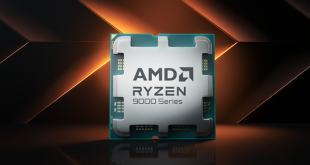Intel Corp. on Monday announced that it has entered into a manufacturing agreement with Panasonic Corp. The world’s largest chipmaker will produce Panasonic’s next-generation system-on-chips using 14nm low-power manufacturing process.
Panasonic's future SoCs will target audio visual-based equipment markets (TVs, Blu-ray players, media players, etc.), and will enable higher levels of performance and viewing experience for consumers, the company said. 14nm process technology will allow to build very advanced chips with minimized power consumption.
“Intel's 14nm Tri-Gate process technology is very important to develop the next- generation SoCs,” said Yoshifumi Okamoto, director of Panasonic SLSI business division. “We will deliver highly improved performance and power advantages with next-generation SoCs by leveraging Intel's 14nm Tri-Gate process technology through our collaboration.”
The fact that Panasonic, which has its own semiconductor manufacturing facilities, decided to outsource production to Intel means that the company will gradually reduce its investments into manufacturing of chips.
Intel’s Custom Foundry division is slowly becoming a real contract maker of semiconductor with multiple customers. Five semiconductor companies have so far announced agreements with Intel's custom foundry business, including Altera, Achronix Semiconductor, Tabula, Netronome and Microsemi.
Discuss on our Facebook page, HERE.
KitGuru Says: Panasonic offers a broad range of semiconductor solutions. If eventually Intel produces a significant part of Panasonic’s chips, it will probably get hundreds of millions of dollars in revenue every year.
 KitGuru KitGuru.net – Tech News | Hardware News | Hardware Reviews | IOS | Mobile | Gaming | Graphics Cards
KitGuru KitGuru.net – Tech News | Hardware News | Hardware Reviews | IOS | Mobile | Gaming | Graphics Cards


